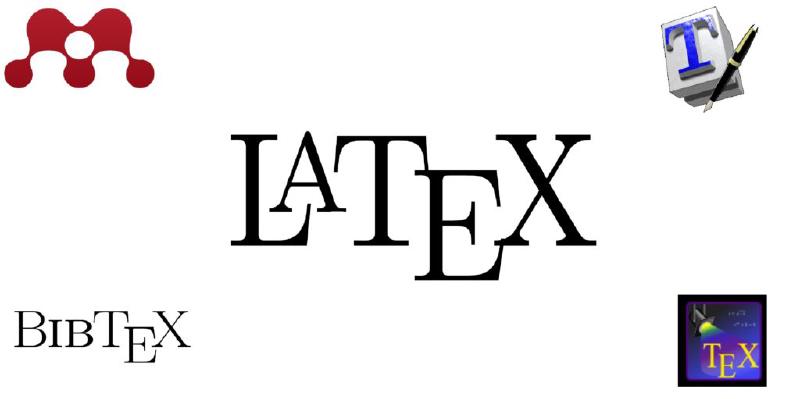东华大学学士毕业论文 LaTeX 模板使用手册
导入模板
使用 Git 克隆仓库
将仓库克隆到你需要的位置:
1
2
3
|
git clone git@github.com:3000ye/dhuBachelor.git
# 或
git clone https://github.com/3000ye/dhuBachelor.git
|
下载 Zip 文件
如果你不会使用Git,可以进入网页:https://github.com/3000ye/dhuBachelor 然后下载Zip文件:
微信公众号获取
如果你没有科学代理,无法进入Github,请扫码关注公众号:3000ye Blog然后回复latex模板获取百度网盘分享链接。
开始使用
安装字体
在使用模板之前,请先找到并打开fonts文件夹,安装里面的所有字体。
配置 TeX 环境
如果你是 $\LaTeX$ 小白,请先行阅读:使用 LaTeX 优雅地完成创作,在这个教程里你可以学会如何安装并配置适合你的 $\TeX$ 环境。
尝试编译
使用你喜欢的编辑器,打开dhuBachelor.tex文件,选择xelatex命令编译文件。如果没有出现报错,同目录下会生成一个dhuBachelor.pdf文件,这就是我们的论文。
各个组件说明
看到这里,相信你已经成功编译好了模板文件,现在你可以在其基础上创作你的论文。
本模板的格式严格按照东华大学本科生毕业设计(论文)撰写规范设置,下面是一些会用到的组件的详细说明。
论文题目
根据要求,论文题目使用三号黑体,上下各空一行,居中显示。添加代码:
1
2
|
\reTitle{中文题目}
\reTitleEN{英文题目}
|
摘要
根据要求,摘要使用四号黑体,下面空一行,居中显示。添加代码:
1
2
|
\reAbstract % 中文摘要
\reAbstractEN % 英文摘要
|
摘要内容直接写在摘要下方,首行缩进两字符。
关键词
中文关键词:小四号黑体(标题),小四号宋体(关键词),逗号分隔,末尾没有标点符号。
英文关键词:Times New Roman(标题加黑)。
1
2
|
\reKeyword{关键词1,关键词2,关键词3,关键词4} % 中文关键词
\reKeywordEN{Keyword1, Keyword2, Keyword3} % 英文关键词
|
目录
目录标题需居中显示,添加代码:
1
2
3
|
\begin{center}
\tableofcontents
\end{center}
|
各级标题
规范中明确给出,最多只能使用三级标题,其中一级标题需上下各空一行。
1
2
3
|
\reSection{一级标题}
\subsection{二级标题}
\subsubsection{三级标题}
|
有序列表
规范中并没有给出无序列表的样例,因此不建议使用,只用有序列表:
1
2
3
4
5
6
7
|
\orderedList{ % 使用 (i) 排序,缩进 2 字符
\item 有序列表标题 \par % \par的作用是将内容换行
这是有序列表的内容
\item 有序列表标题 \par
这是有序列表的内容
}
|
数学公式
行内公式:$f(x) = x + 1$
跨行公式:跨行公式请使用equation环境,默认按照章节自动编号。
1
2
3
4
5
|
\begin{equation}
x = a_0 + \cfrac{1}{a_1
+ \cfrac{1}{a_2
+ \cfrac{1}{a_3 + \cfrac{1}{a_4} } } }
\end{equation}
|
插入图片
图片插入默认在文字下方,请严格按照模板的格式进行插入,使用时只需要改width大小和图片路径,并根据实际更改图例和索引。
注意:图片需要保存在assets/目录中才能被正确插入,读者可以自己新建其他目录实现插入。
1
2
3
4
5
6
7
|
\begin{figure}[H] % 图片位于文字下方
\centering % 居中
% 设置图片占页面宽度的比例(默认0.8)
\includegraphics[width=0.8\textwidth]{assets/dataStructures.jpg}
\caption{图片标题} % 图例,按章节编号
\label{fig: 数据结构2} % 图片索引
\end{figure}
|
有时可能需要多图并排,模板使用minipage来实现并排展示,使用时可以修改子图所占比例:
1
2
3
4
5
6
7
8
9
10
11
12
13
14
|
\begin{figure}[H]
\centering
\begin{minipage}[c]{0.40\textwidth} %minipage使之保持同一行
\centering
\includegraphics[width=0.8\textwidth]{assets/dataStructures.jpg}\\
\caption{图片1标题}
\end{minipage}
\hspace{1em}
\begin{minipage}[c]{0.40\textwidth} %minipage使之保持同一行
\centering
\includegraphics[width=0.8\textwidth]{assets/dataStructures.jpg}\\
\caption{图片2标题}
\end{minipage}
\end{figure}
|
插入表格
使用 excel2latex 工具生成表格代码后,需要手动添加分割线(\toprule, \midrule, \bottomrule),以达到三线表的格式要求。
1
2
3
4
5
6
7
8
9
10
11
12
13
14
15
16
17
|
\begin{table}[H]
\centering
\caption{表格标题}
\begin{tabular}{c||l}
\toprule
parameter & Description \\
\midrule
$I$ & Land area collection \\
$J$ & Flower pollination demand set \\
$D_j$ & Number of pollinating bees required for flower pollination \\
$T_k$ & Honeycomb size grade, $k = 1, 2, \cdots$ \\
$B$ & Maximum number of hive \\
$R_{ik}$ & Maximum influence radius of a single honeycomb \\
\bottomrule
\end{tabular}%
\label{tab: 一个表}%
\end{table}%
|
对于需要多表并排的情况,和图片的方式类似,使用minipage来实现:
1
2
3
4
5
6
7
8
9
10
11
12
13
14
15
16
17
18
19
20
21
22
23
24
25
26
27
28
29
30
31
32
33
34
35
36
|
\begin{minipage}[c]{0.45\textwidth}
\centering
\begin{table}[H]
\centering
\caption{表格1标题}
\begin{tabular}{c||lc}
\toprule
Symbol & Description & Unit \\
\midrule
$t$ & $t_{th}$ year & $\sim$ \\
$e_k$ & the error term & $\sim$ \\
$X_{ij}$ & Raw data matrix & $\sim$ \\
$Y_{ij}$ & Positive matrix & $\sim$ \\
\bottomrule
\end{tabular}%
\label{tab: 表格1标题}%
\end{table}%
\end{minipage}
\begin{minipage}[c]{0.45\textwidth}
\centering
\begin{table}[H]
\centering
\caption{表格2标题}
\begin{tabular}{c||lc}
\toprule
Symbol & Description & Unit \\
\midrule
$t$ & $t_{th}$ year & $\sim$ \\
$e_k$ & the error term & $\sim$ \\
$X_{ij}$ & Raw data matrix & $\sim$ \\
$Y_{ij}$ & Positive matrix & $\sim$ \\
\bottomrule
\end{tabular}%
\label{tab: 表格2标题}%
\end{table}%
\end{minipage}
|
插入代码
可以直接在.tex文件中编写代码,并指定语言和标题:
1
2
3
4
5
6
7
8
9
10
11
|
\begin{lstlisting}[language=c++,title={code.cpp}]
#include "bits/stdc++.h"
using namespace std;
int main() {
cout << "3000ye 的 LaTeX 模板!" << endl;
return 0;
}
\end{lstlisting}
|
另一种更为推荐的方式是加载文件中的代码,代码文件需要保存在assets/目录下:
1
|
\lstinputlisting[language=c++, title=code.cpp]{code/code.cpp}
|
插入伪代码
使用宏包algorithm, algorithmic来实现伪代码的添加,具体实现可以查看文档,下面是一个简单示例:
1
2
3
4
5
6
7
8
9
10
11
|
\begin{algorithm}
\caption{Example Pseudocode}
\begin{algorithmic}
\STATE $x\gets0$
\IF {$x\leq 0$}
\STATE $x\gets x+1$
\ELSE
\STATE $x\gets x-1$
\ENDIF
\end{algorithmic}
\end{algorithm}
|
参考文献
参考文献使用\bibitem来添加,添加时需要手动更改{RNi}索引(i是你文献的序号)。
1
2
3
4
|
\reference{
\bibitem{RN1} 参考文献1
\bibitem{RN2} 参考文献2
}
|
致谢
1
2
3
|
\reThanks{
致谢,3000ye 的 \LaTeX 模板!
}
|


